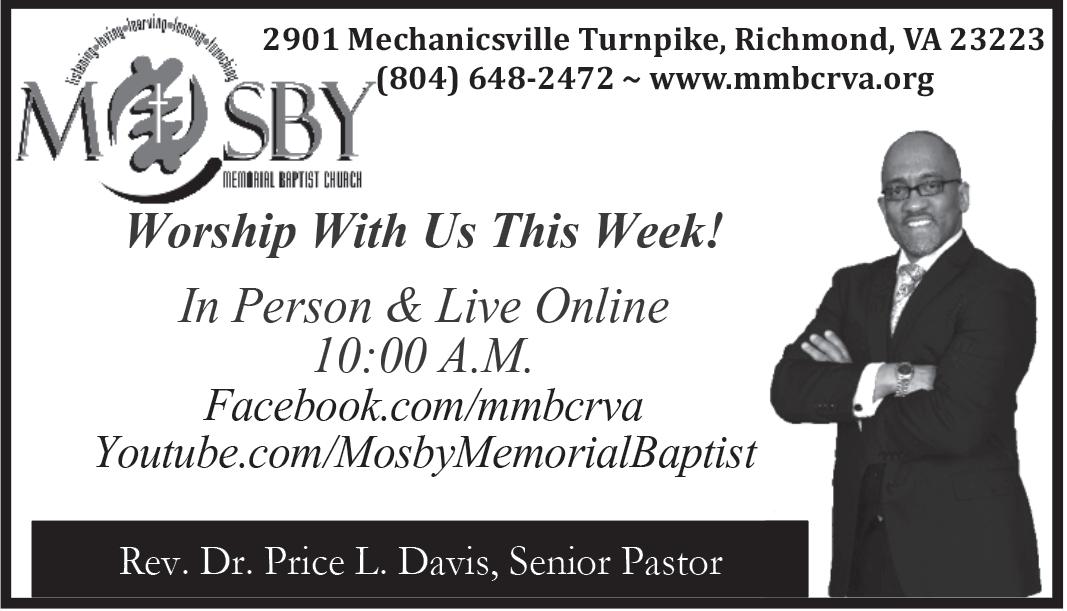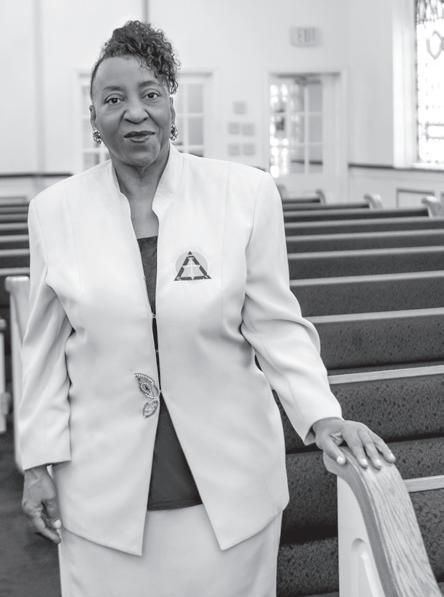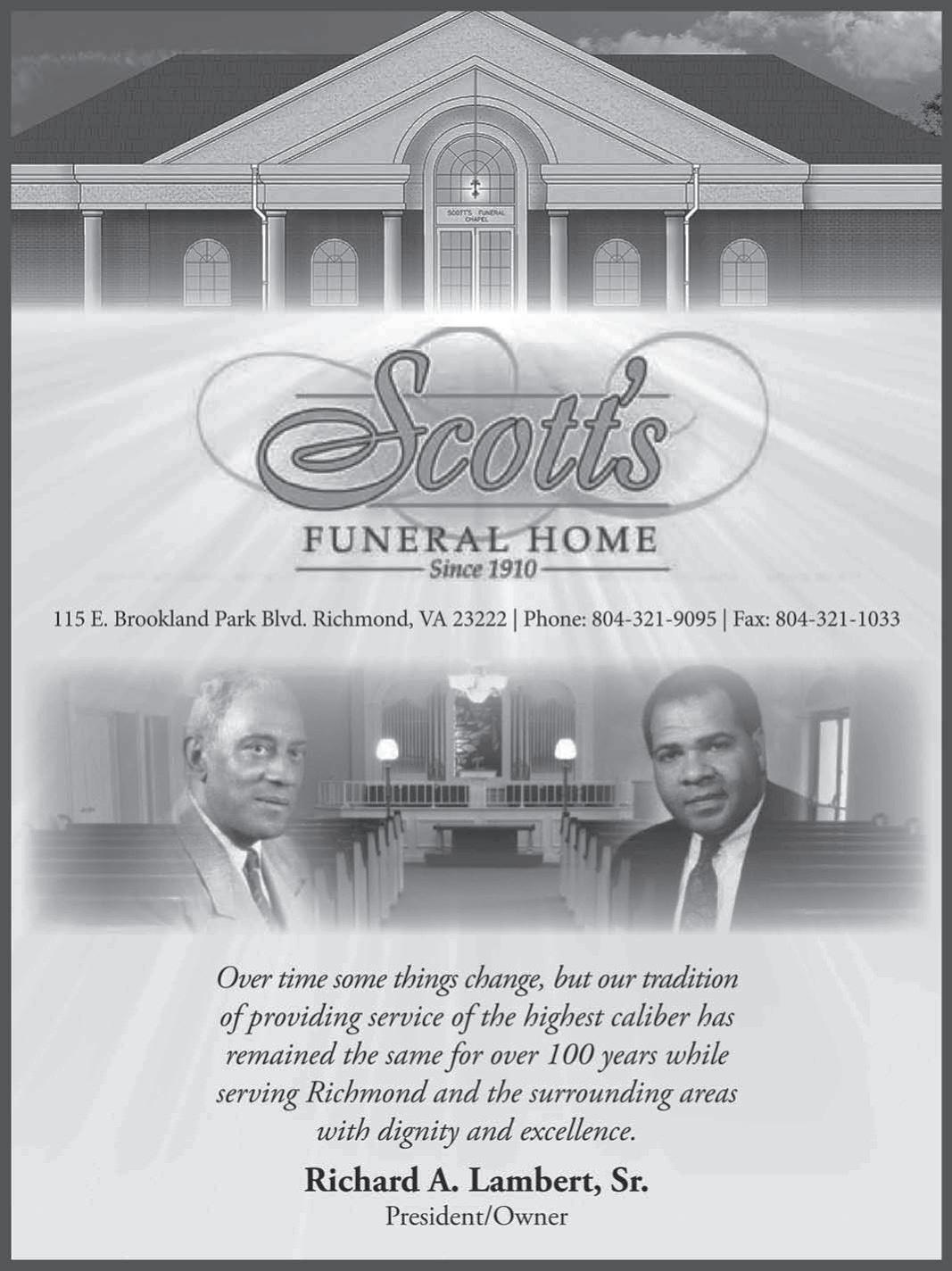




By George Copeland Jr.
The Richmond Redevelopment and Housing Authority’s Board of Commissioners voted 6-3 on Wednesday to reject a resolution that would have led to the transfer of ownership of the Gilpin Court neighborhood.
Under the terms of the proposed resolution, the phased transfer of the property would begin “only after addressing the major governance concerns raised by” Mayor Danny Avula and would follow the Jackson Ward Community Plan. A letter of approval from Avula would also be required as part of the redevelopment process.
The board tabled the resolution after a long discussion and public comments on the resolution during the meeting at RRHA headquarters, as officials and residents supporting the proposal stressed the need to move forward to ensure the redevelopment’s success.
“I believe that it is imperative that we take action now,” RRHA CEO Steven Nesmith said.
Officials and residents opposed to the resolution questioned the quick nature of the process and the effect of the proposal if approved. They called for a delay on the vote, more clarity on the proposal and community involvement.
These criticisms and others led to the introduction of a substitute motion by board member Kyle Elliott to table the resolution.
“I am in support of improving the lives of residents and getting resident feedback and doing all the things we need to do to make Gilpin Court great,” Elliott said. “This resolution is not necessary to that.”
A motion for the board to support Nesmith’s continued negotiations with City Council and Avula to get their support on Gilpin’s redevelopment and Section 18 application was more successful. Board members voted 5-2, with Elliott abstaining, to approve it despite questions raised about its necessity.
“What we voted on tonight is very important,” Nesmith said after the vote, adding that he welcomed the chance to ensure a more transparent negotiation and redevelopment process. “It says affirmatively that this board supports me. I feel empowered.”
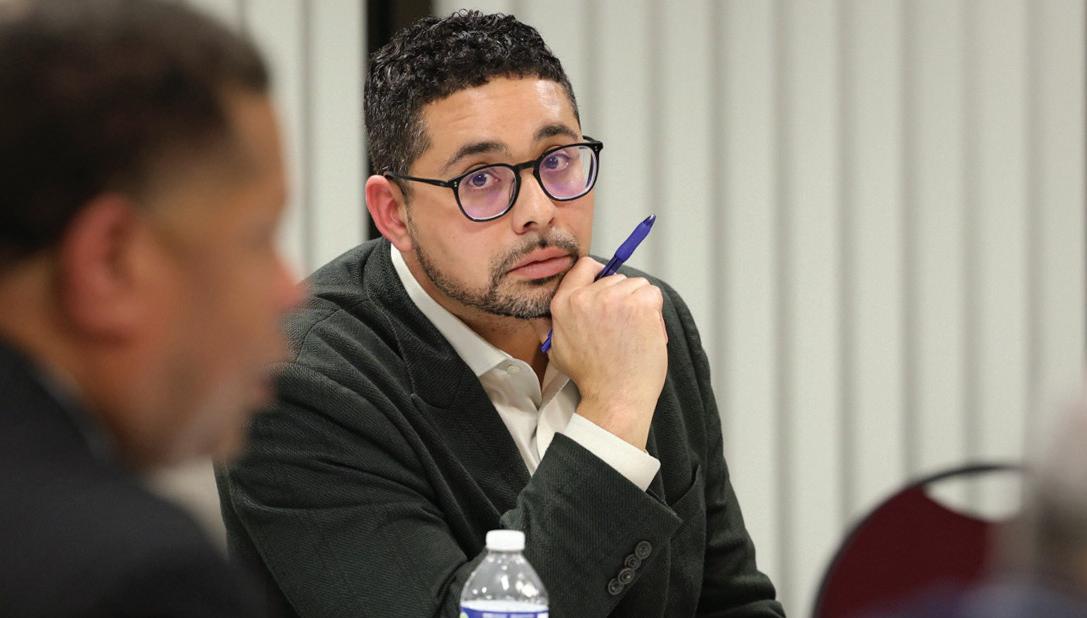

By Craig Belcher
It took time for the schedules of a woman running a statewide campaign and the editor of a short-staffed weekly newspaper to align, but they eventually did, making this long-planned interview possible. Abigail Spanberger, the Democratic gubernatorial candidate, met us at an Innsbrook office in a nondescript building suited to the short-lived, intense work of campaigning. Inside, there were no frills — just walls and windows. We were led to a room where we were told she would appear shortly, but she was already there, waiting in a sparsely furnished space with a long meeting table.
I couldn’t shake the notion that this former CIA officer was doing a threat assessment as we set up our equipment. If I were her, I would probably have done the same even though our interview took place in late July, weeks before the murder of activist and podcast host Charlie Kirk, a grim reminder of

Renaissance.

By George Copeland Jr.
Creighton Court residents opened the doors to a new chapter Tuesday as housing, city and state officials reintroduced the neighborhood as the Creighton Renaissance.
The new name, developed with input from the community, was unveiled during a ceremony hosted by the Richmond Redevelopment and Housing Authority to celebrate the end of Phase A of redevelopment and the first residents moving into 68 new apartments.
“I’m just so happy and so grateful to have a place to go and grow and just prosper,” former Creighton Court resident Yvette Ross said as she and other residents were handed symbolic
keys during the ceremony. “You don’t know how much this means to me.”
The ceremony marked the culmination of years of work in Creighton, which welcomed its first resident, Frances “Granny” Jones, in November 1952. She lived there with her family until her death in 2017. Jones now lends her name to one of Creighton’s new streets and is remembered as one of many longtime residents of a neighborhood originally designed to provide affordable housing.
Over the decades, Creighton has faced disinvestment, segregation and isolation from the rest of the city, which took a toll on the community’s
Colonial Downs receives approval to open gaming facility — over Henrico’s objections
By Michael Phillips
The Virginia Racing Commission voted 5-0 on Monday afternoon to approve a proposed gaming facility in western Henrico County operated by Colonial Downs, despite opposition from all levels of Henrico’s government.
The facility, scheduled to open on Sept. 29, is called “Roseshire” and is being positioned as an upscale version of the Rosie’s facilities that exist on Midlothian Turnpike in Richmond and at Colonial Downs in New Kent County.
It will have 175 historical horse racing machines, which look and operate like slot machines, but are tied into the state’s parimutual wagering system and are powered
by the results of past horse races, making them legal as off-track wagering under a 2018 vote by the General Assembly.
Colonial Downs is opening the Henrico facility by citing a 1992 referendum where Henrico voters allowed off-track betting. However, Henrico officials noted that the machines are different from actually wagering on horse races, and are asking for a new referendum before Roseshire is allowed to open.
During a public comment period, speakers included Henrico Supervisor Dan Schmitt, who said the track has “avoided every opportunity to engage with the community” during the process, and state Sen. Schuyler VanValkenburg, D-Henrico, who said voting to allow the machines in
2018 “might be the vote I most regret in my time in the General Assembly.”
“At every turn, Churchill (Downs) has taken steps to avoid engaging with Henrico residents,” he said. “Which has, you know, fueled a lot of cynicism, eroded a lot of trust, and caused what we have here today.”
Churchill Downs is the parent company of Colonial Downs. A spokesperson for the group said none of its representatives at the meeting on Monday would be available for comment.
A lawyer from Williams Mullen, which is representing Henrico, told the commission that moving forward with the facility would be illegal. After about 30 minutes

Free Press staff report
A panel discussion aimed at encouraging community members to run for political office will be held Sept. 23 at Eggspectation Restaurant in Stony Point Fashion Park.
The event, titled “Be a Part of the Resolution - Running for Political Office,” will run from 6:30 to 7:30 p.m. at 9202 Stony Point Parkway.
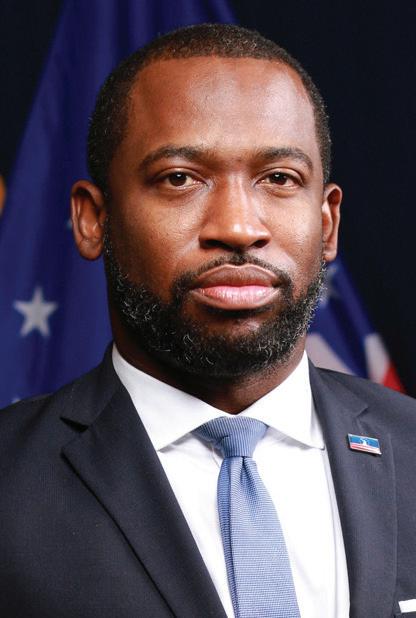
The discussion will feature former Richmond Mayor Levar Stoney, Delegate Debra Gardner of District 76, and Leslie Mehta, who is running for District 73. The panelists will share their political journeys and discuss steps for entering elected office at various levels.
According to organizers, the event goes beyond typical voter education and registration efforts by focusing on how community members can become directly involved in the legislative process as elected officials.
The panel aims to address the need for community representation in elected positions ranging from city council and school board to state legislature and Congress, according to a press release. Organizers said the initiative is particularly important for residents of communities of color to have input on laws that govern their lives and communities.
Attendees will have opportunities to engage with the panelists about pathways to political office and preparation for campaigns.
For more information, contact Mesha Mott at 804-938-3336 or meshamott@yahoo.com.
Free Press staff report
Virginia Union University will welcome Melva K. Wallace, president and CEO of Huston-Tillotson University in Austin, Texas, as the speaker for its opening convocation on Thursday, Sept. 25 at 10 a.m. in the Allix B. James Chapel.
Wallace brings more than 20 years of leadership experience in higher education and is a nationally recognized advocate for Historically Black Colleges and Universities.


By George Copeland Jr.
Maggie Clemmons, a former Richmond Public Schools chief talent officer, is suing the district’s leadership for $6.35 million, alleging defamation and due-process violations after employees publicly accused her of discrimination, harassment and other misconduct during a February School Board meeting.
K. Wallace
A Presidential Leadership Scholar, Wallace has studied under three U.S. presidents and received numerous honors, including the ATHENA Award and recognition by Diverse Issues in Higher Education as one of the top 25 dynamic women in higher education. She was also named to the Austin Business Journal’s “Texas 100” list of Most Influential Professionals to Watch.
Her work includes co-teaching the course “The Business of Trap Music” with Grammy-winning rapper Clifford “T.I.” Harris. She also helped found the Higher Education Leadership Foundation, which has trained more than 500 HBCU leaders, many of whom now serve as presidents, provosts and deans nationwide.
“Wallace is a bold voice for HBCUs and a powerful example of servant leadership in higher education,” said Hakim J. Lucas, president and CEO of Virginia Union. “Her story, her vision and her voice are exactly what we want our students to hear as we begin a new academic year grounded in faith, excellence and purpose.”
Wallace is a three-time HBCU graduate, holding a bachelor’s degree in mass communication and a master’s in public administration from Grambling State University and a Ph.D. in urban higher education from Jackson State University.

Early voting in Virginia begins Friday ahead of 2025 elections
Richmond voters can soon begin casting ballots early for the 2025 elections, including races for governor, lieutenant governor, attorney general and members of the House of Delegates. Early voting allows residents to vote in person before Election Day and can help reduce wait times at polling places.
In Richmond, early voting locations include the Office of Elections at 2134 W. Laburnum Ave., City Hall at 900 E. Broad St. and the Hickory Hill Community Center at 3000 E. Belt Blvd. Henrico County voters can visit the Western Government Center at 4305 E. Parham Road, the Eastern Government Center at 3820 Nine Mile Road, or the Varina Library at 1875 New Market Road. Chesterfield County residents may use the Central Library at 7051 Lucy Corr Blvd.
Early voting begins Friday and continues through Friday, Nov. 1, for the general election. Hours are generally Monday through Friday from 8:30 a.m. to 5 p.m., with select Saturdays also open from 9 a.m. to 5 p.m.
The deadline to register to vote in Virginia is Friday, Oct. 24. Residents can register online, by mail, or in person at their local registrar’s office. Voters who prefer to vote by mail can request absentee ballots through the Virginia Department of Elections website or by contacting their local registrar. Requests must be submitted by the posted deadlines to ensure ballots are received and returned in time. Election officials encourage Virginians to take advantage of early voting to avoid long lines and ensure their participation in the democratic process. For the latest information on locations, hours, registration and deadlines, visit elections.virginia.gov
The federal suit, filed last week, names the Richmond School Board and Superintendent Jason Kamras. It claims they allowed employees to carry out “a smear campaign” during the meeting, when 18 staffers accused Clemmons of workplace harassment, favoritism in hiring, and unethical behavior and called for her removal.
“I was pushed out of my position without any justification or due process,” Executive Office Associate Jodi Granger said during the meeting, claiming that Clemmons replaced her in her role in the Benefits and Compensation Department with a younger, white woman. “She is truly messing with my livelihood.”
Clemmons was placed on administrative leave two days after the meeting, and an email obtained by reporters shows RPS stated that she would “not be returning to the role” after the position was reopened in May.
“The School Board and Kamras knowingly and willfully allowed Clemmons to be viciously defamed without any ability to defend herself,” Clemmons’ suit reads, “and then, without any due process, RPS told the entire world that it was terminating
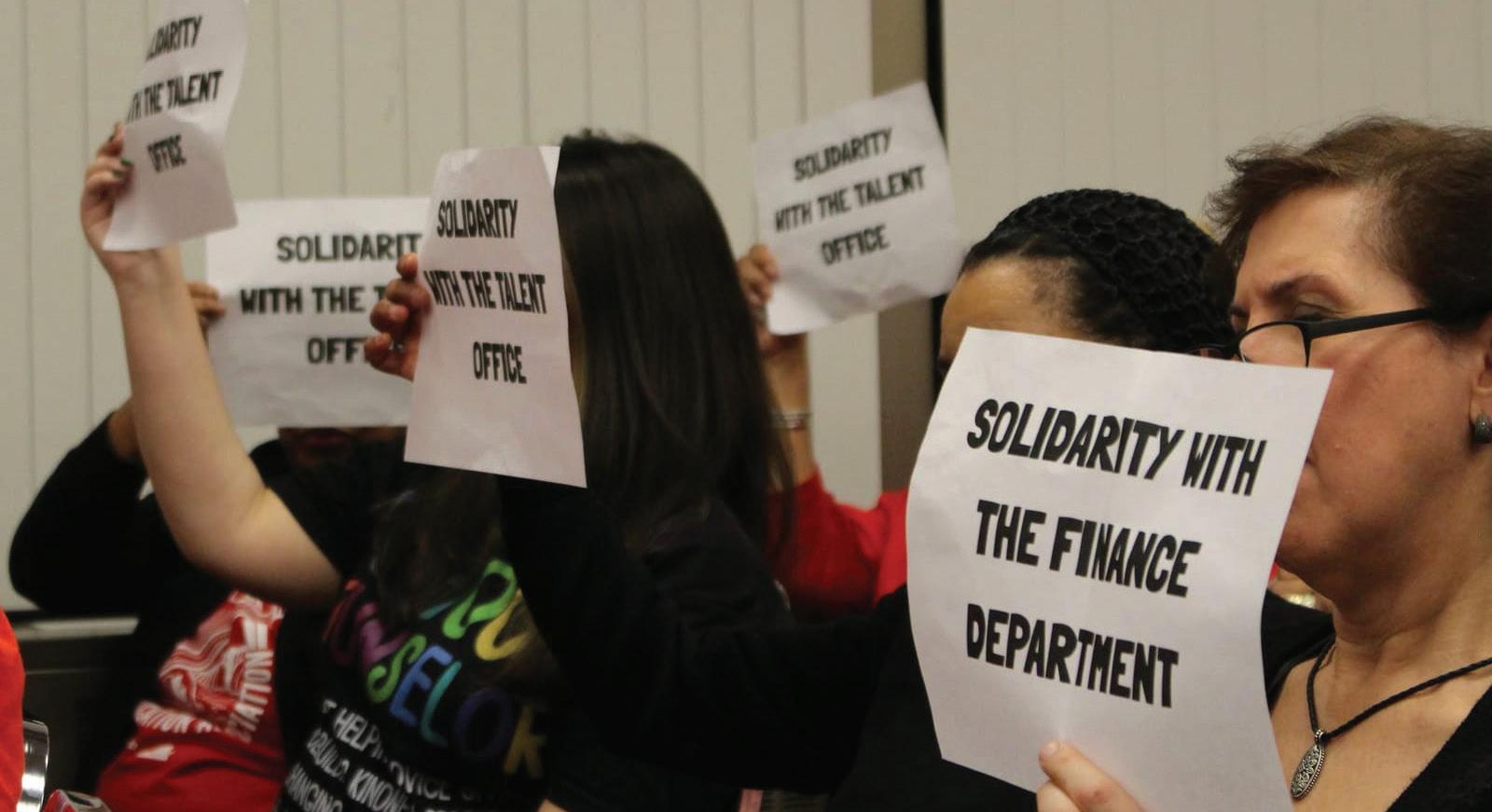
her because the defamatory accusations about her were true.”
Clemmons’ suit alleges that the board and Kamras violated the board’s “settled policy” that bars complaints about specific employees during public comment.
The suit cites RPS’ anti-discrimination, bullying and harassment policies to argue Clemmons’ right to privacy, and notes that other employees brought up separate complaints against her during a board meeting’s public comment period last October.
Those comments, based on complaints the suit says had already been investigated and found without merit, were halted by then-Board Chair Dawn Page, who said they were “not appropriate at this time” and would be addressed in a closed session.
Clemmons’ suit also cites a 58-page document containing the employees’ testimonies sent by Talent Office and Finance Department staff and the Richmond Education Association to board members and Kamras ahead of the meeting as evidence.
The suit notes that other school systems have explicit rules prohibiting the sharing of personnel complaints during public comments. RPS’ Guidelines for Participation during public information periods bar speakers from making “personal attacks on anyone,” but do not specifically address allegations against individual employees.
When reached for a response to the suit, an RPS spokesperson said the division does not comment “on personnel matters or ongoing litigation.”
Free Press staff report
The City of Richmond received national recognition last month for its electric vehicle policies and jumped 21 spots in a national ranking of sustainable municipal fleets.
The NAFA Fleet Management Association presented Richmond with its Best Electric Vehicle Policies 2025 award in August at the Sustainable Fleet Technology Conference in Winston-Salem, North Carolina. The award recognizes the city’s electric vehicle replacement policy, equipment operating procedures and fleet electrification efforts.
Richmond also ranked 16th on NAFA’s list of the top 50 green fleets nationwide, up from 37th place in 2024. The city ranked first among Virginia municipalities.
“We are honored to be considered a national leader in the shift toward electric,” Mayor Danny Avula said. “Although we are proud of how far we have come, we remain committed to forward progress and will continue to invest in policies

that reduce emissions, improve efficiency, and deliver on our promise for thoughtful environmental stewardship.”
The recognition stems from policies developed by the city’s interdepartmental Joint Energy Team, including five comprehensive electric vehicle charging contracts implemented over the past year.
Laura Thomas, director of the Office of
Sustainability, said the ranking improvement reflects collaboration between her office and the Department of General Services, along with external partners.
“Moving from 37th to 16th in just one year is a tremendous achievement and is a testament to just how seriously we are taking our sustainability efforts,” Thomas said.
The NAFA ranking evaluates municipal fleets on electrification progress, fuel reduction and implementation of sustainable practices. More information about Richmond’s sustainability initiatives is available at rva.gov/sustainability.
professor awarded $1.1M grant to study glowing mushrooms

Free Press staff report
Virginia State University Associate Professor Xianfa Xie has received a $1,148,010 grant from the National Science Foundation to study bioluminescent fungi, or mushrooms that glow, according to a VSU press release. Xie, director of VSU’s Center for Biotechnology, Genomics, and Bioinformatics, will examine the mechanisms and regulation of fungal bioluminescence, a phenomenon that remains largely unexplained. The project, titled “Excellence in Research: Elucidating the mechanism of fungal bioluminescence through genomic and biochemical approaches,” is expected to take three years. “I am very excited to receive this award from the National Science Foundation to continue our research on bioluminescent fungi,” Xie said in the release. “There are still a lot of unanswered questions around this rare phenomenon, like why some species glow and others don’t, and why, for the same fungal species, some isolates in the U.S. may glow while those from Europe cannot. I want to understand why.”
The grant also provides funding for students to participate in the research. Xie plans to integrate the project into his courses, giving students hands-on experience in cutting-edge science.
According to a press release from the university, bioluminescent fungi have potential applications in medicine, agriculture and biotechnology. They can serve as reporter systems in molecular biology and have been genetically engineered into plants to produce glowing crops for commercial purposes. Researchers continue to study how to harness and scale fungal bioluminescence. The release noted that Xie will conduct his research at the Center for Biotechnology, Genomics, and Bioinformatics, a facility established in 2022. The new funding will allow the university to expand its equipment and research capacity.


the risks that come with being in the public eye.
In our discussion, Spanberger addressed how her background shapes her approach to policy and governance, outlining the practical steps she believes are necessary to address issues such as housing, health care and public safety. The 46-year-old described the challenge of running for office in the “interesting times” we happen to be living in.
Richmond Free Press: What are your top three priorities if elected governor?
Spanberger: My priorities are to focus on addressing the issues of costs, across Virginia. Those areas of importance are within particularly housing, health care and energy. So I’ve already released my affordability plans for housing, health care and energy and, frankly, that’s my top priority because I hear about it from voters across every corner of Virginia. My second priority is ensuring that we are putting Virginia on a path through having the very best public schools in the country and strengthening [them] of all aspects, whether it’s contending with issues of teacher shortages or working to expand access to career and technical training programs, and what might be really the path of success for kids. And then my third priority is ultimately setting the landscape during this time when we see so much under attack from Washington, whether it’s contending with the impact of Medicaid cuts and what that will mean for Virginia or contending with the cuts to food security programs or contending with the reality of the economic impact of having so many Virginians lose their jobs because of the DOGE efforts.
RFP: What do you say to people, in light of all these drastic changes that the Trump administration has proposed, who feel powerless or discouraged?
Spanberger: That there are a lot of reasons to feel discouraged. But — we have to, as we can, take everything that we disagree with and use it as motivation to make the change that, frankly, our kids or our grandkids or our neighbors deserve. I just use it all for motivation because what he is doing doesn’t align with what the country I believe in or the Commonwealth I believe in, or what I think the American people deserve in their leadership. And I don’t want my kids or any other kid to think that this is just who we are and what we are long term. In Virginia we’re lucky, we get to
get to vote, we get to send a message this November. And certainly we’re talking about my race, but it’s not just the governor’s race. It’s a lieutenant governor’s race, the attorney general’s race and we’ve got 100 people running for House of Delegates. And so we get to take our power back and make a change, certainly, with the statewide races, but [also] reelecting people who are doing good work in the General Assembly and then adding to their numbers and, in doing so, we’ll send a message to the rest of the country.
RFP: What have you learned from your constituents, others in your district, and people around the state — that has changed your perspective on governing?
Spanberger: All across the state, people really are talking about so many of the same things, sometimes the ways that it comes up might be slightly different … if it’s talk about health care costs, right, certainly in more rural parts of the state, it’s worry that there may not be any access. But in other parts of the state, it’s that prices continue to go up. When it comes to housing, in some places, it’s just housing prices are far too expensive and people can’t afford it, and the supply is not what it needs to be. … I was in Southside about two weeks ago, and the constraint issues are the fact that some of the affordable housing is getting bought up by large outside companies and the prices, right?
The supply is there, but the pressure being put on the overall cost particularly within the rental market is outpacing what people can afford.
I think what at times is a little bit surprising, but it is true, is that everywhere so many of the same challenges are front of mind for people, even if they might manifest in slightly different ways. That hasn’t necessarily changed my mind on something, but I think it’s just fortified my commitment to try and actually recognize these complicated issues. I can’t fix everything, you know, in a day or a month or in some cases even a fouryear term. But you’ve got to try and fix things, and you’ve got to put us on a path toward being there.
RFP: Considering where you’ve worked before, how come we haven’t seen bombshell revelations about the other candidates? Are you holding back?
Spanberger: [laughs]
RFP: I expected to have a big story every other week.
Spanberger: [laughs] Oh, are you referencing my CIA background? You know, I really want people to know,
like who I am as a candidate, what I’m running for. So I pushed out my affordability plans. Next up, we’re releasing our economic plan, the Growing Virginia Plan. My opponent is welcome to speak to her plans and priorities at whatever point and time in the future she chooses. Certainly, as a campaigner, I will absolutely be making clear the contrasts that exist between the two of us. I think she creates enough news on her own when she talks to her press, so I’ll let her continue to do that.
RFP: Back to your time with the federal government, how do you balance that background with calls for criminal justice reform, especially in the Black community?
Spanberger: It informs a lot of what I think are reforms that are necessary. When I was a young federal agent, I was oftentimes the only woman on a search warrant or an arrest warrant. And that meant, when there were kids, wives or girlfriends, mothers or other individuals in a home, when we would make entry on a house and arrest the person we were endeavoring to arrest, you have to go through an interview — everyone. I was frequently the one who would engage with the moms or the kids. So even as a very young professional, like, the impact on family members, of what it means when their loved one … when they had done something wrong, when they were getting arrested and then as they were going through the criminal justice system, the impact is not just on that one individual, the impact is on the entirety of the family or even the community. I think as a former federal agent, as a former law enforcement officer, and it’s something I carried through, certainly as a member of Congress, when you are in a position of public trust of any type, I think that you have an increased level of responsibility for being held to a high, high standard. And so to some degree, as a former law enforcement officer, I have no qualms about saying to any law enforcement officer that in that position of public trust, they should be held to the highest standard possible and recognize the impact of what they do on a day-to-day basis. Certainly upholding the law as a responsibility, but doing it in a way where you are — whether it’s respecting someone’s humanity, their actual constitutional rights, or trying to see that our system of justice should be a system of justice and not just a sort of a punitive exercise that, you know, creates ripples and harms people and
communities beyond actually just holding one person accountable.
RFP: Where do you stand on restoring voting rights for people who have completed their prison sentences?
Spanberger: The constitutional amendment, I fully supported. As governor, I won’t have a role in passing that, other than making sure that I’m campaigning heartily for it when it comes before the people in 2026, but importantly, I’m going to work on the assumption that it will pass this next General Assembly and then pass on the referendum on the ballot in 2026, but there will still be a substantial number of people who will be eligible to have had their voting rights restored before that amendment will go through. And so it will be my responsibility to make sure that anyone who’s eligible, they shouldn’t have to wait till that referendum passes and, you know, months down the line before if they are eligible when I’m sworn in, then they should be in process to get their voting rights restored without having to wait for that referendum.
And then importantly ensuring that there’s a clearer path of communication for anyone who does get their voting rights restored, either by actions through my office or ultimately through that constitutional amendment, that people clearly know what that means, that they know that is something that will, once that amendment passes, that will happen automatically, and how they know, ensure they know how to register and they know how to reengage. Yes, it’s about the right to vote, but it’s actually about what that means … as a citizen, what that means in terms of the actions they can take.
RFP: Talk about your stance on the efforts to restrict how Black history is taught in schools. Spanberger: I think it’s terrible. It’s a short answer. The long answer is … efforts to restrict how we teach history, it harms all of our kids. I’m a white woman, my kids are white. And when they’re in school, I want them to learn the successes and the failures of Virginia, of our history. I want them to see examples of extraordinary Black resilience and strength and successes. I also want them to understand that, you know, the earliest days of our country and our Commonwealth were built on a really shameful history. We’re the birthplace of democracy; we’re also the birthplace of slavery in the Western world. But I also recognize it’s extraordinarily important, you know, not just for my kids to see all those examples
of … people throughout history, I want kids to see themselves in the stories that are told of success and of innovation and whether it’s in the arts or whether it’s research or in agriculture.
Sen. [Lamont] Bagby has a bill that would allow for AP African American history to count toward graduation. That’s a bill that should be signed into law. If AP European history counts to graduation, why would AP American history that happens to be focused on the history of African American communities and development across the United States not count?
RFP: What do you do when you have down days on the campaign?
Spanberger: We used to go on a lot of family bike rides. My children are at an age where they’re not obliging me as much. But I like to be outside. So we’ll spend some time walking along the river. I like to read or watch movies. I’m currently reading two books. One is called “The Good Spy,” which I feel like is probably given the joke you made earlier — I probably shouldn’t have admitted to that one.
RFP: Too late
Spanberger: [laughs] Yeah. It’s a history of a CIA officer who worked a lot on the Middle East peace process and was killed in the Beirut bombing. And then I’m reading “The Rural Voter,” which is a really interesting one. One of the authors is from Virginia, the other is from Maine, I believe.
RFP: When you thought about running for governor, did you ever imagine you’d be running against two Black women?
Spanberger: [laughs ] No. No. When I got in the race, I obviously assumed that the lieutenant governor would run.
RFP: Anything else you want to add?
Spanberger: I think we’re at an interesting time where so much of what I think historically has really strengthened our country — whether it’s diversity of experience or diversity of perspective or skill set — where that is not only being sort of eroded and deemphasized, but there’s this effort to say that, like, none of it matters and, in fact, if you do think that someone’s difference of perspective matters, that you’re wrong.
And I just think that it’s really essential that in Virginia, we make clear that when we vote in this election in 2025, that we are rejecting, obviously, this is my opinion, that we’re rejecting what we’re seeing coming out of Washington that attacks so much of what Virginia is, has been, and what our future is.
The board’s vote came months after a similar resolution was rejected 5-4 in April.
In the days leading up to the meeting, questions arose between Richmond leaders and RRHA over the planned redevelopment.
Last Thursday, Avula released a statement on RRHA’s plans for Gilpin, outlining eight action items he said would be necessary for him to endorse the redevelopment.
Avula’s action items called for greater transparency and the inclusion of Gilpin residents and their representatives in the redevelopment process. He also urged RRHA to delay transferring Gilpin to the Richmond Development Corporation, its nonprofit subsidiary, until major concerns about RDC’s governance structure are addressed.
The new language in the proposed resolution seemed to reflect some of Avula’s requirements, including RRHA’s use
“If we are serious about building a Richmond that truly thrives together, then we must be just as thoughtful about how we engage as we are about the outcomes we seek,” Avula said.
of the Jackson Ward Community Plan as guidance for Gilpin’s redevelopment.
The board’s vote also occurred a day after Richmond’s Land Use, Housing and Transportation (LUHT) Standing Committee was set to consider a resolution focused on RRHA that was introduced in July by 3rd District Council member Kenya Gibson. The ordinance, which would have declared that the council had not authorized Gilpin’s redevelopment and barred any redevelopment without its approval, was withdrawn by Gibson just hours before the meeting.

well-being as well as educational and job opportunities. Throughout the ceremony, residents and community members emphasized the need to address these challenges.
“All of you here that are involved with this right here, never forget,” Jones’ son Alpheus Jones said during the ceremony. “You need to do something for the people more than just put them in brand-new buildings.”
Creighton’s redevelopment began with the former Armstrong High School site in 2017, followed by the demolition of
housing units starting in 2022.
The process has not been without controversy, as residents and housing advocates have questioned RRHA’s handling of resident displacement during demolition, limits on the amount of new low-income housing units and other aspects of their plans. Creighton’s redevelopment also continues as plans for other public housing neighborhoods like Gilpin Court have seen scrutiny from residents and city officials.
RRHA CEO Steven Nesmith, speaking to reporters after the ceremony, saw Creighton as an example of how collaboration with residents,
partner organizations and the city can benefit other public housing redevelopment efforts.
“The way we make sure what happened today happens at Gilpin Court is that we make sure we move forward in partnership,” Nesmith said.
Mayor Danny Avula, who attended the ceremony with other city officials, praised the results of Phase A during a news conference at City Hall later that day. He also acknowledged mistakes, noting that some Creighton residents were not adequately informed or prepared for the changes brought by redevelopment, and stressed the importance of
Continued
of closed-session deliberation, the commission said it was advised by its own counsel that it can move forward and voted 5-0 to allow the facility, without discussing the matter further.
Henrico officials vowed to pursue all options to stop the facility’s opening.
“It ain’t over until it’s over,” said County Manager John Vithoulkas. “We’ll sit down, regroup and see what (the next moves) are going to be.
“If you had a class of kids and you presented them with this issue and said, ‘OK, what would the outcome be in a democracy?’This isn’t what the outcome would be.
“You know, in 1992 those machines never existed. This is just money buy-
ing votes.”
The racing commission has occasionally drawn scrutiny for its seemingly conflicting missions to promote the horse racing industry and bring more money into it while also regulating the gambling machines that generate that money. In a 2022 study, state analysts concluded the racing commission did not have “adequate staffing, expertise or regulations” to effectively oversee machines like the ones planned for Henrico.
The Colonial Downs spokesperson noted that other Rosie’s locations around the state are also based on referendums that were passed in a similar timeframe, and said Roseshire has already received approval of its safety plan from Henrico police. The 175 machines coming to Henrico
are a fraction of the 1,200 at the Richmond location, which generated about $7.4 million in local tax revenue last year.
This year, the General Assembly altered the law that previously distributed that money 50-50 between New Kent County, where the track is located, and the location of the Rosie’s itself, and Richmond is now positioned to receive the full amount next year.
The General Assembly also voted to require the track to hold a referendum in Henrico, but that provision was removed by Gov. Glenn Youngkin.
“I think that speaks to legislative intent when we’re talking about that 2018 bill,” VanValkenburg said. “It speaks to the fact that, if we do end up in a court of law, they’re going to be on the wrong side of it.”
Schmitt noted Henrico’s standing as a top place to do business as he criticized the track for not working with the county.
“When Colonial Downs was sold to Churchill Downs, that’s when the conversation ended,” he said. “Their exact words were, ‘We’re going to do what we want.’ And one thing I will say, they’ve been true to their word.”
Churchill Downs officials, who described Roseshire as an upscale venue, said it will include a sit-down restaurant called Crimson Kitchen and a music lounge.
They said the Henrico facility would not take any business from the Richmond facility, citing the company’s research that the majority of Rosie’s customers come from within 5 miles of the facility.
This article originally appeared on TheRichmonder.org.
avoiding similar issues in other neighborhoods.
“I really believe that any redevelopment work that we do going forward has to be resident-focused,” Avula said. With Phase A complete, the next phase of Creighton’s redevelopment focuses on constructing 72 additional units, expected to be finished this fall.
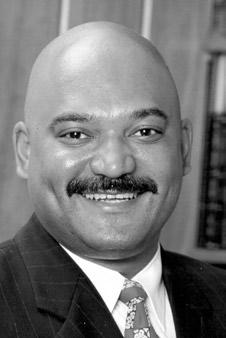
By Charlotte Rene Woods
Sam Harris, who was incarcerated for 24 years in Virginia until last summer, wants “to be a face for second chances.”
“There are a lot more like me in there,” he said of the roughly 22,000 people behind bars in Virginia as he sat on the steps of the state Capitol building — the place where a change in state law allowed him to begin working toward his goal of representing redemption in earnest.
With parole all but eliminated in Virginia 30 years ago, reinstating it has been a political nonstarter. Some lawmakers have agreed to pathways like Enhanced Earned Sentence Credits (EESC), which allow qualifying inmates the chance to prove their progress in the Department of Corrections and trim some time off their sentences.
And a limited few, like Harris, can petition governors for pardons. Despite Gov. Glenn Youngkin having granted Harris’ request in 2023, he still had to remain behind bars until July, when the use of EESC allowed his release.
He said he’s taking his personal life slowly — no dating, no alcohol, focusing on reconnecting with friends and family in Hampton Roads. But professionally, he’s fired up about the nonprofit Reentry and Recovery Alliance he started to help support ex-offenders as they reenter society.
While plenty of other success stories like Harris’ can be found among the Virginians released through EESC, the program’s longtime opponent Attorney General Jason Miyares, who is running for reelection, remains cautious about existing recidivism and has reignited fresh calls to undo the program.
A highly politicized program Miyares’ reasons for attacking the program are not unfounded. He has pointed to VADOC data showing that between 49% and 35% of people released via EESC in 2023 and 2024 were rearrested. Of the 35% of those rearrested since last year, nearly 19% of those people were reconvicted and 5% were reincarcerated.
The bulk of the offenses that resulted in new convictions were property related or supervision violations (like missing a meeting with probation officers), according to a more detailed report shared by House Republican Caucus communications director Garren Shipley. There were also four reconvictions for murder and three
for manslaughter.
In his reelection bid, Miyares has also attacked opponent Democrat Jay Jones for supporting the law — alleging that violent reoffender charges are Jones’ fault because he supports EESC.
At a July news conference featuring crime victims, Miyares said EESC “forces the Virginia Department of Corrections to release offenders whose recidivism assessment score still lists them as a high risk for violent reoffending and a high risk for general reoffending.”
Proponents of EESC say the recidivism is low enough to show that the majority of people who earn their second chance aren’t wasting it.
The program is also young enough to still be proving itself. The full scope of it was implemented just last summer, with a portion of it taking effect in 2022.
But the program has been highly politicized every step of the way.
First championed by Speaker Don Scott, D-Portsmouth, an ex-felon who made history as Virginia’s first Black House speaker, the law passed in 2020 with a delayed enactment. At the time, both Miyares and Jones were serving as delegates in the chamber. Jones voted in favor, and Miyares voted against it.
By 2022, Miyares was attorney general and Youngkin used budget language to block the full implementation of EESC. Miyares’ continued advocacy against the law seemingly spurred Youngkin to continue blocking it until he permitted it to take full effect last summer. Earlier this year, he pivoted back to undoing it, but his proposal did not survive budget negotiations.
Between the longstanding efforts of Miyares and Youngkin to block the program, in 2023 the state Supreme Court found the administration had unlawfully kept eligible prisoners behind bars.
Now, as campaign season heightens, Miyares has taken fresh aim at the program.
On July 14, Senate Majority Leader Scott Surovell sent a letter to VADOC Director Chad Dotson to kick off a conversation about “any ways we can make the program stronger to address (Miyares’) concerns instead of only focusing on reverting to 1990-era prison policy.”
Writing on behalf of himself and other lawmakers, Surovell said the cohort was “concerned that the annual whipsawing” about EESC from Miyares and Youngkin paired with multiple court orders “have made it difficult for your staff to
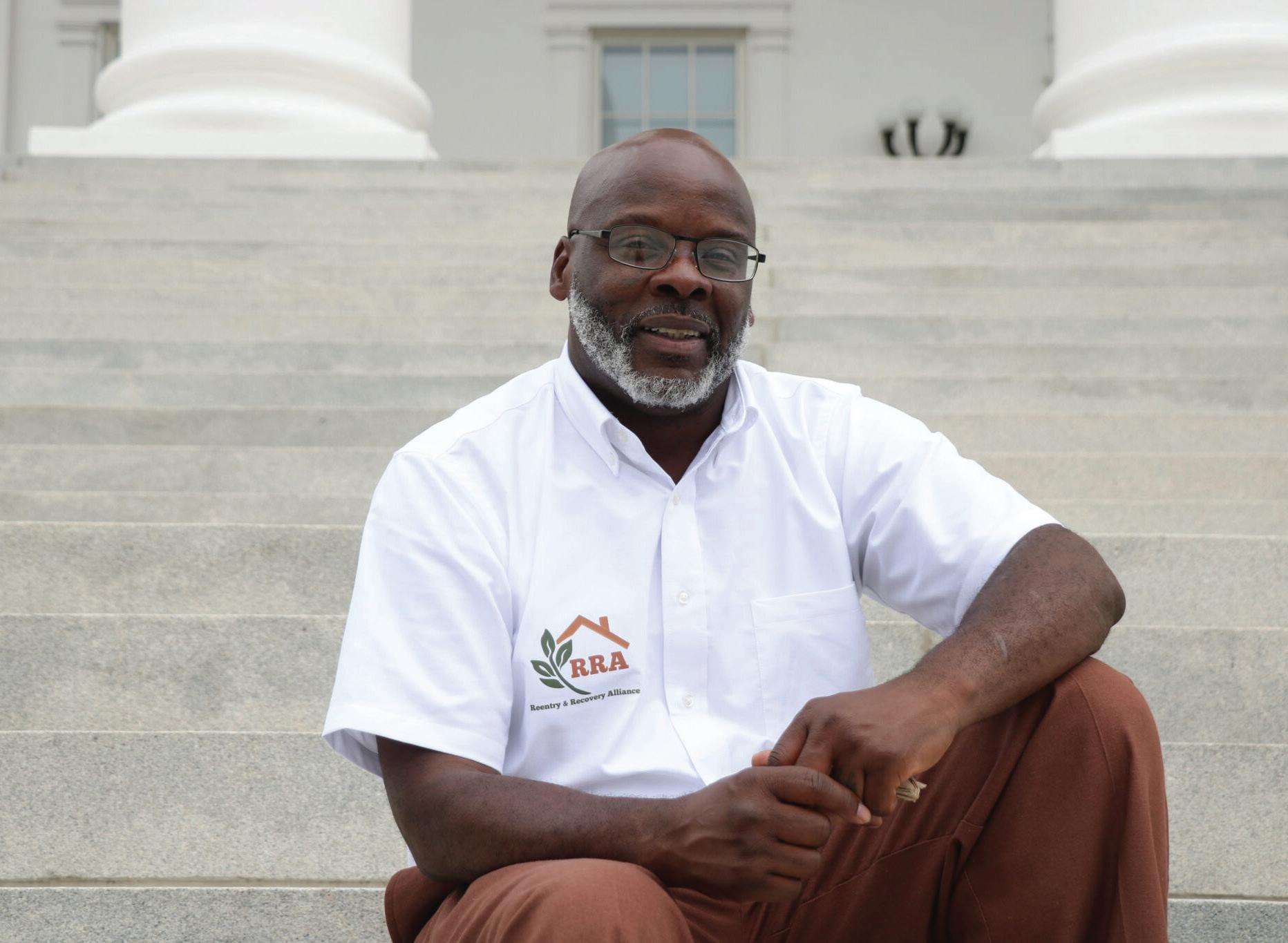
sits on the steps of the
allowed him to earn early release and
after prison.
plan and implement the existing system.”
In a recent interview, Surovell suggested Miyares may have had his hand on the scale all along to sabotage the program’s effectiveness.
“We need to examine whether or not the governor and the attorney general, with the attorney general’s advice, have worked in a way to undermine the effectiveness of the program,” he said in a recent interview.
When the law passed, state funding was earmarked to implement it. Surovell explained “it costs money on the front end” to provide services to help people prepare to be released, but that the goal is to reduce recidivism in the first place.
Surovell said “it’s just not clear to me that money was invested the way it was supposed to be,” because “the Youngkin administration has been fighting it from the very beginning.”
Miyares did not make himself available for an interview for this story or respond to questions about his current stance on EESC. Jones declined to comment.
‘A whirlwind of goodness’
In the meantime, beneficiaries of EESC praise the role it had in their reform.
Lynchburg-area resident Reece Neenan emphasized how EESC gave him incentive to keep up the self-improvement he at times didn’t feel inspired to undertake while incarcerated. He
also credits a program called Helping Addicts Recover Progressively (HARP) with tackling underlying issues that drove him to crime. Neenan now balances college with fulltime work at Campbell Heating and Cooling. But his most important job is the one that previously didn’t earn him the best reviews: being a father.
He said his son, now 20, has had reservations about whether Neenan had reformed himself from his criminal past and the addictions that contributed to it. His son had also felt pressure to help support the family in lieu of pursuing schooling or a career of his choice, Neenan said. Now, the younger man is pursuing work he cares about and believes in his father.
“He sees it now, it’s not me telling him,” Neenan said. “He sees the new me and I love it. No matter how down I was or how bad drugs had gotten, that’s not my story anymore.” Are there exceptions to the rule, people who relapse and reoffend? “Of course,” Neenan said.
“But for the most part,” he added, “people I know out here are staying out of trouble because it’s easy now.”
Neenan described this new chapter in his life as “a whirlwind of goodness” and one that he and Harris hope more people can experience. This story originally appeared on VirginiaMercury.com.







When it comes to gambling in Virginia, it seems the people behind the machines are always one step ahead of elected officials.
It started with those “skill games” that subtly made their way into convenience stores and other retail outlets across the state. Their operators discovered a loophole: Games that appeared to test skill, rather than pure chance, were technically legal under existing law. In other words, betting on the outcome of a horse race from years ago takes a degree of skill, while wagering on whether three cherries will appear next to each other is all luck.
In a letter to the state, regulators admitted the law was vague and enforcement was inconsistent. That was taken as a cue to unleash a wave of machines that seemed to proliferate overnight. Now, the people behind the games people play are counting their winnings after beating the politicians again.
The Virginia Racing Commission recently approved the “Roseshire” gaming parlor in western Henrico County, billed as a fancy version of the Rosie’s on Midlothian Turnpike. Owned by Colonial Downs, the venue will feature 175 of those historical horse racing machines along with entertainers, simulcast wagering on horse racing around the country, and “exceptional” food and beverages, according to a news release. They’ve already hired 175 people, according to a report, and plan to open on Sept. 29. A news release from the company makes it seem the party might’ve already started and management is preparing something special, just for the occasion:
“Roseshire will be an upscale and welcoming entertainment and gaming parlor with exciting games, great entertainment and top-tier food and beverage, including an innovative mocktail program we are launching just for Roseshire,” said Jeremy Callahan, general manager of Roseshire.
Jobs, entertainment options, sounds like the kind of thing that politicians might endorse, right?
Don’t bet on it. In Henrico, the county government has tried to stymie the project and may not have given up the efforts. According to reports, the gaming parlor is allowed to exist because of a 1992 referendum, in which voters in Henrico approved off-track betting. Talk about playing the long game.
And yet, no voters in 1992 could have imagined today’s slot-like machines. Henrico officials and state legislators called for a new referendum, only to see that provision stripped by the governor from this year’s legislation in March.
We concede that Rosehire sounds like a fun time, for people who are into that sort of thing. But the social implications of gaming parlors on the community should be considered, and it appears that a public discussion with county officials and the operators of the facility hasn’t happened yet. There are many issues to discuss — increased traffic, gambling addictions and the economic impact on nearby businesses.
Henrico leaders say they’ll keep fighting Roseshire’s opening. They should. County residents deserve a voice on what’s landing in their neighborhoods now, not just on decisions made decades ago under a different set of rules. Until lawmakers tighten the laws and close the loopholes, the house will keep cashing in.

Activist and Code Pink founder Medea Benjamin, whose group is a pro-peace feminist organization, was walking the halls of Congress when she spotted Rep. Darrell Issa, R-Calif. She asked him about Israel’s attack on Qatar and his reply was “Go away.”

oned by up to a year. I saw the video. The only way Issa was “impeded” was by a question. She at no time put her hands on him, resisted him or interfered with him. Arresting and charging her is overreach designed to intimidate and to frighten people from going to places where we are fully entitled to be.
She followed him a few feet into his office to repeat her question and he instructed his staff to “take her phone.” Capitol Police were called, and Benjamin was arrested on a charge of “impeding a congressman.” She has a court date in October.
This arrest is absurd. Don’t our taxpayer dollars fund the Capitol building? Shouldn’t we all have the right and opportunity to walk through the building to stop and talk to our elected representatives whose salaries we pay? Issa, whose brusque behavior was caught on video, was never “impeded.”
Federal law says that anyone who “forcibly assaults, resists, opposes, impedes, intimidates or interferes with” certain government officials engaged in official duties shall be fined and impris-
Benjamin’s arrest is not
the first attempt to criminalize dissent in this era of lies and misinformation. When National Guard troops roam the streets of Washington, D.C., randomly stopping, arresting and deporting people, detaining Benjamin is business as usual in this repressive regime.
Consider Sen. Alex Padilla, D-Calif., who entered a news conference to ask a question and was wrestled to the ground and handcuffed by federal agents. They claimed they acted to protect Homeland Security Secretary Kristi Noem. He was held for a brief period but received no apology. Instead, federal agents claimed Padilla did not identify himself as a U.S. senator. He says he did and furthermore he was in a federal building in California, the state
he represents. Their physical attack on him was just another part of the Trump sideshow designed to intimidate.
One of the most egregious efforts to criminalize dissent happened when Rep. Monica McIver, D-N.J., was indicted on two felonies and one misdemeanor for “assaulting, resisting, impeding and interfering with federal law enforcement officers.” Having seen the video and been apprised of the circumstances, nothing could be further from the truth. McIver and other New Jersey elected officials were simply doing their jobs when they made an oversight visit to Delaney Hall. Each felony count carries a possible sentence of eight years and the misdemeanor could bring a year. McIver is scheduled to go to trial in November. Meanwhile, right-wing extremist Rep. Clay Higgins, R-La., introduced a measure to censure McIver and remove her from the Homeland Security Committee. While Republicans have tended to vote in lockstep, on Sept. 3 the Higgins motion failed 215-207. Five Republicans opposed the censure, and two voted “present.” The effort to intimidate McIver failed.
While the vote to censure McIver failed in September,
Is another era of political violence upon us?
In his life’s work, Charlie Kirk, a rising star in conservative politics, did not give me, or millions of Americans like me in the political center or left, a great deal of optimism about the direction of our nation’s partisan politics.
But his bru tal assassina tion, captured in horrific video images none of us can unsee, poses a dire threat to our de mocracy, and it is the duty of all of us, regardless of political loyalty, to renounce and defuse any further political violence.

I deplored Kirk’s politics. I still do. But his politics did not merit violence of any kind. In the outpouring of rage that followed the news of his shooting, many voices on the right, from the exalted studios of Fox News to the lowest sloughs of social media, bayed that the “left” did this and that the left would pay.
I didn’t wish violence on Kirk. Nobody I respect, or even know, wished for it.
Quite the opposite. I actually appreciated Kirk’s success at motivating young people — mostly disenchanted and disengaged young men — to engage in politics as a means to building the nation they wanted to live in.
Kirk’s energy, dedication and talent in that direction were truly impressive. What, I sometimes wondered, were the folks on my side of the political divide doing to reach out to the young in this way? Who was our movement builder?
Kirk is gone, and I know what that must feel like to his friends and admirers on the right. But we have had more than enough politically motivated violence in
recent times.
We have barely recovered emotionally from the June assassinations of Minnesota state Rep. Melissa Hortman, and her husband, Mark, as well as the attempted assassinations of Minnesota state Sen. John Hoffman, his wife, Yvette, and daughter Hope. Hortman and Hoffman were
Democrats, as were most of the dozens of potential targets found on a list compiled by the assassination suspect, Vance Luther Boelter.
Boelter was indicted in July by a federal grand jury on six counts, some of which carry the death penalty. We don’t know his motive, although it seems to have been political.
But I’m unaware of any Democratic politician or person with any reach in American politics who called for reprisal for his crime with violence.
Indeed, Boelter’s crimes were cited by Democrats and others after Kirk’s assassination to counter claims by President Donald Trump and others that political violence was a problem produced by “radicals on the left.”
In stark contrast to how politicians should act at times like this — namely, calling for unity and calm and to allow justice to take its course — Trump, certain members of Congress and an unfortunate stream of voices in right-wing media sounded more eager to throw more kerosene on the fire. Give the internet hotheads a chance, and they’ll come through with talk of “war” and radicalization. Trump was already in full-tilt crackdown mode, insisting that conservative extremists have been radicalized for legitimate reasons.
As someone who has promoted
free speech, regardless of which side is trying to speak out, I hope that Democrats and Republicans can approach this crisis with compassion, humility and selfreflection, and even learn some things from the other side.
Remember that California Gov. Gavin Newsom invited Kirk to be the first guest on the Democratic governor’s “This Is Gavin Newsom” podcast in March. Among other interesting things that emerged from that encounter was Newsom’s admission that his 13-year-old son wanted to stay home from school to meet Kirk, whom he followed on TikTok.
I understand. My own adult son has become my unofficial right-wing political adviser, filling me in on who Kirk was and how he seemed to have more pull with a feisty, irreverent sector of the “manosphere” than the more conventional pols (who are better known to an old geezer like me).
But as an old geezer, I remember the sort of tit-for-tat violence that plagued this country in the 1960s — and I dread its possible return. Amid a wave of anti-war and civil rights protests came the assassinations of Martin Luther King Jr. and Malcolm X, among other casualties.
I have no desire to see the return of such eruptions.
Neither does Michael Fanone, the former Metropolitan Police Department officer who was beaten almost to death by the Jan. 6 mob at the U.S. Capitol. Michael Fanone, the former Metropolitan Police Department officer who was beaten almost to death by the mob at the U.S. Capitol on Jan. 6, learned firsthand what the threat of democracy slipping away feels like. He’d rather not feel it again. Neither would I. The writer is a columnist for the Chicago Tribune.
Rep. Al Green, D-Texas, was censured because he interrupted the president’s address to a joint session of Congress in March, shaking his cane and shouting that the president had no mandate. The 224-198 May vote had 10 Democrats voting with Republicans. When the censure resolution was read, Green and several other Democrats sang “We Shall Overcome” so long that House Speaker Mike Johnson had to call a recess. Green faces no fine or jail time for the censure, but his congressional seat was one of those eliminated in Texas’ redistricting. The effort to criminalize dissent is an effort to silence us. But there are resisters who will not be silenced, resisters who will not be moved. Thanks to Medea Benjamin, Monica McIver, Al Green and all of those who understand that silence is complicity.
The writer is a D.C.-based economist and author.




Communities around Virginia are ignoring an opportunity to prevent suicides and mass shootings. That’s the unmistakable conclusion found in recent news articles about the use — or lack thereof — of “emergency substantial risk orders,” commonly known as the red flag law.
The state’s 2020 law allows police and sheriff’s deputies to take firearms from individuals or stop them from buying guns if they are a risk to themselves or others. Yet, most localities didn’t use the law at all last year, the Richmond Times-Dispatch reported this summer.
That inaction must change. Gun control and gun rights advocates should agree on this, even though the hardened positions that both sides exhibit on firearms prevent consensus.
Such emergency orders work. True, it’s practically impossible to prove a negative about the lives saved or grief avoided. But several academic studies have shown the effectiveness of red flag laws around the U.S.
A Duke University professor estimated in 2024, for example, that one suicide could be prevented for every 17 to 23 extreme risk protection orders that are issued. Columbia University researchers used computer modeling to show Florida’s red flag law reduced firearm homicides by about 11%.
And a 2019 study by researchers at the University of California at Davis identified 21 cases in which California’s red-flag law helped prevent a mass shooting.
“The bottom line, they’re effective,” Dr. Paul Nestadt, medical director of the Center for Suicide Prevention at Johns Hopkins Bloomberg School of Public Health, told me. He’s co-author of a report released in June that studied gun suicides across the country.
The orders also help when people fear an abusive domestic partner will use a gun against them. “It could be a lifesaving thing,” Nestadt said. Nearly two dozen states and Washington, D.C., have red flag statutes.
The law in Virginia allows prosecutors, police or sheriffs to go to court to seek an ESRO against someone. Often, family members tell authorities of concerns about their relatives, or law enforcement officials receive tips about potential threats.
Within 14 days of issuing the order, a hearing in circuit court must be held to determine whether the decision can remain in effect for up to six months. The subjects of the order are guilty of a Class 1 misdemeanor for buying, possessing or transporting a firearm during that period.
The civil process can be extended for additional time. Authorities also return firearms after the immediate threat ceases.
Fairfax County used the orders far more than any other locality in 2024 and has been a strong supporter of them. Many localities, though, didn’t have a single ESRO last year. It’s as if they don’t know how to use them or are reluctant to seize firearms from residents.
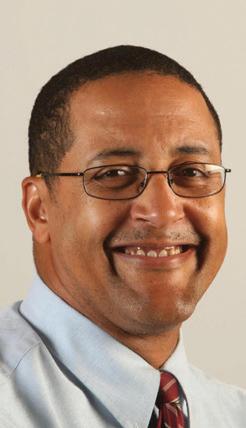
Virginia State Police told me that since the law took effect in July 2020 through Sept. 2, 2025, authorities obtained 1,994 emergency orders statewide. Fairfax County had gotten 362 of that total through July, spokespeople with the county Office of the Commonwealth’s Attorney told me. The county is the state’s largest locality, with roughly
1.2 million residents.
“This tool prevents tragedy,” said Steve Descano, the county’s top prosecutor and a big proponent of the policy. “It gets guns out of people’s hands that could be a danger to others.”
The office dedicates at least four attorneys to these cases. (They also handle other duties.) A special court docket takes place weekly. The county has run ads about the law, and it
even has a link on the commonwealth’s attorney’s website that explains the process and lists the number of cases.
Other localities, though, have rarely used the tool — if at all. Nor is it clear whether local residents know the option is available; it could be valuable when a family member is having a mental health crisis.
Portsmouth did seize firearms from a resident after the person posted images on Face-

This is a public meeting to notify riders of GRTC’s upcoming changes with our October service updates. These will start 10/19/2025. The changes include updated run times, the replacement of fixed route 56 with microtransit service with the expanded Sandston LINK zone, and to introduce our newest LINK microtransit zone in Broad Rock.
Wednesday, September 24, 2025 5:30-6:30 PM
The Annex of the Main Library Richmond Public Library 101 E Franklin St, Richmond, VA 23219
book of weapons and threatened a local Walmart. That incident had taken place shortly after the mass shooting at a Walmart in nearby Chesapeake in November 2022.
A news report said it was the only time Portsmouth, a city of about 97,000 people, had sought an order in five years.
“We know it’s not being used as often as it could and should be,” said Del. Rip Sullivan, D-Arlington, and chief sponsor of the 2020 legislation in the state House. He told me more Virginians should know about the law, including doctors, emergency room staff and mental health professionals.
One case from Crozet this year is murky, but it raises serious questions about whether law enforcement authorities should have intervened more forcefully. Family members of Justin M. Barbour had notified local officials twice in the two months leading up to his Feb.
17 shooting rampage.
The shootings outside a grocery store left three people dead, including Barbour, 28. He didn’t know his victims.
If not for the presence of an off-duty federal officer, who shot and killed Barbour, more people could’ve been harmed. Barbour fired off 28 rounds within just 20 seconds.
During several earlier interactions with police, “Barbour presented a calm demeanor,” Albemarle County Police said in a March 6 statement. “There was no indication or evidence of violence, threats, or self-harm reported to police, which are the standard threshold to obtain an ECO (Emergency Custody Order) or Emergency Substantial Risk Order (ESRO).”
News reports, though, said family members had begged for help from the Albemarle police before Barbour’s rampage. A magistrate had denied an emergency custody order sought by
the family in December. A police department spokesperson, by email, told me the department didn’t seek an ESRO in court based on its contacts with Barbour and the information it had. Relatives, under the current law, can’t go to court directly to seek such an order; they need the intervention of police or prosecutors. Clearly, family members should have that option. Authorities, too, should err on the side of caution to prevent such horrible violence. The red flag law in Virginia is no panacea. Potential acts of mayhem don’t always fit neatly into the law’s guidelines. Yet imperfect as it may be, the law helps. Localities should use every tool that can prevent a suicide or mass shooting. The inertia must stop. The writer is a columnist and editorial writer at VirginiaMercury.com.
COUNTY OF HENRICO, VIRGINIA PROPOSED AMENDMENTS TO BUDGET FOR FISCAL YEAR ENDING JUNE 30, 2026
COUNTY OF HENRICO, VIRGINIA PROPOSED AMENDMENTS TO BUDGET FOR FISCAL YEAR ENDING JUNE 30, 2026
The County Manager’s recommended amendments to the budget for fiscal
information. Publication of this proposed amendments does not constitute an
The County Manager’s recommended amendments to the budget for fiscal year 2025-26 are prepared and published in synopsis form solely for the purposes of fiscal planning and public information. Publication of this proposed amendments does not constitute an appropriation of funds for those purposes by the Board of Supervisors. Funds cannot be allocated or distributed until they are appropriated by the Board. The amendments consist of estimates and are requests submitted to the County Manager with his recommendations concerning the requests. The Board of Supervisors of the County of Henrico, Virginia, will hold a public hearing regarding the proposed amendments to the budget at a meeting on September 23, 2025, at 6:00 p.m., in the Board Room at the Henrico Government Center, Hungary Spring and East Parham Roads. The public hearing will be held pursuant to Virginia Code Section 15.2-2507, and is for the purpose of allowing the public to question and comment on the proposed amendments to the budget. All citizens have the right to attend and share their views on the proposed amendments within such reasonable time limits as shall be determined by the Board of Supervisors.


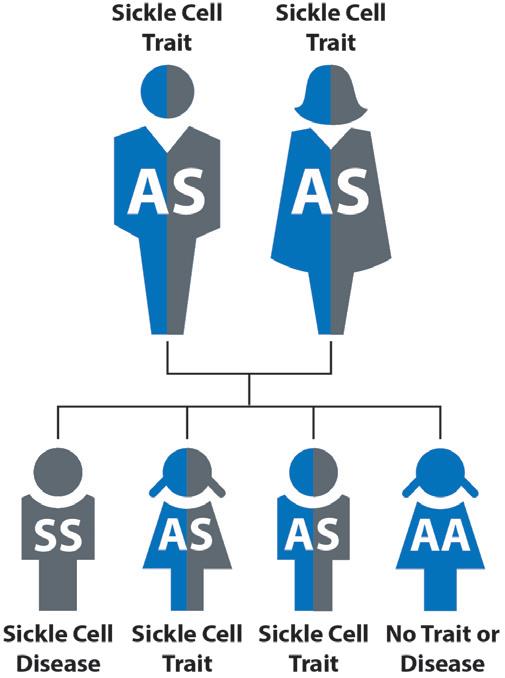
with


or the Load Rating Program Manager, Manjil Devkota at 804-786-4064 The Virginia Department of Transportation is committed to ensuring that no person is excluded from participation in, be denied the benefits of, or be subjected to discrimination under any of its programs or activities on the basis of race, color, or national origin, as protected by Title VI of the Civil Rights Act of 1964. If you need further information on VDOT’s Title VI Program or special assistance for persons with disabilities or limited English proficiency, please contact the Virginia Department of Transportation’s Title VI Program Specialist at 804-786-2730 or corina.herrera@vdot.virginia.gov
are prepared and published in synopsis form solely for the purposes of fiscal
ADDITIONAL RESOURCES
The County Manager’s recommended amendments to the budget for fiscal year 2025-26 are prepared and published in synopsis form solely for the purposes of fiscal planning and public information. Publication of this proposed amendments does not constitute an appropriation of funds for those purposes by the Board of Supervisors. Funds cannot be allocated or distributed until they are appropriated by the Board. The amendments consist of estimates and are requests submitted to the County Manager with his recommendations concerning the requests. The Board of Supervisors of the County of Henrico, Virginia, will hold a public hearing regarding the proposed amendments to the budget at a meeting on September 23, 2025, at 6:00 p.m., in the Board Room at the Henrico Government Center, Hungary Spring and East Parham Roads. The public hearing will be held pursuant to Virginia Code Section 15.2-2507, and is for the purpose of allowing the public to question and comment on the proposed amendments to the budget. All citizens have the right to attend and share their views on the proposed amendments within such reasonable time limits as shall be determined by the Board of Supervisors.
funds for those purposes by the Board of Supervisors. Funds cannot be allocated or distributed until they are appropriated by the Board. The amendments consist of estimates and are requests submitted to the County Manager with his recommendations concerning the requests. The Board of Supervisors of the County of Henrico, Virginia, will hold a public hearing regarding the proposed amendments to the budget at a meeting on September 23, 2025, at 6:00 p.m., in the Board Room at the Henrico Government Center, Hungary Spring and East Parham Roads. The public hearing will be held pursuant to Virginia Code Section 15.2-2507, and is for the purpose of allowing the public to question and comment on the proposed amendments to budget. All citizens have the right to attend and share their views on the proposed amendments within such reasonable time limits as shall be determined by the Board of Supervisors. At the September 23, 2025, meeting, after the public hearing, the Board will consider approving the amendments to the Annual Fiscal and appropriating funds, as applicable, for fiscal year 2025-26.
At the September 23, 2025, meeting, after the public hearing, the Board will consider approving the amendments to the Annual Fiscal Plan and appropriating funds, as applicable, for fiscal year 2025-26. PROPOSED AMENDMENT
At the September 23, 2025, meeting, after the public hearing, the Board will consider approving the amendments to the Annual Fiscal Plan and appropriating funds, as applicable, for fiscal year 2025-26.
PROPOSED AMENDMENT
ADDITIONAL RESOURCES




The Richmond Flying Squirrels ended their final season at The Diamond with record-setting crowds and a 5-2, 10-inning loss to the Hartford Yard Goats on Sunday.
The six-game “Diamonds Aren’t Forever: The Farewell Series,” drew 52,027 fans, surpassing the club’s 50,000-fan goal and setting a franchise record for a homestand. The team posted three consecutive sellouts of 9,810 fans for the first time in its 15-year history.
Richmond averaged 6,768 fans per game this season, the highest in franchise history and the top mark for an Eastern League club in 20 years. Total attendance reached 446,679, the team’s highest since 2011. The Flying Squirrels led all 30 Double-A teams in total and average attendance for the fourth straight year and rank sixth among 120 Minor League Baseball teams in average attendance.
“These numbers reflect what we’ve always known — Richmond has the very best fans in baseball,” president and managing partner Lou DiBella said. “When we set a goal of 50,000 for the Farewell Series, it wasn’t about a number, it was about community.”
The Diamond, which opened in 1985, has hosted professional baseball for four decades, from the Richmond Braves to the Flying Squirrels. Sunday’s crowd pushed the ballpark’s all-time attendance to 16,674,494.
On the field, Hartford broke a 2-2 tie in the 10th inning on a two-out RBI single by Bryant Betancourt and a two-run double by Julio Carreras off Tyler Vogel (1-1). Richmond had tied the game in the seventh on a Diego Velasquez groundout and a Nate Furman RBI single. Ryan Murphy started for the Flying Squirrels, allowing one run over 4 2/3 innings.
The Flying Squirrels (66-78-1, 35-32) saw a four-game win streak snapped. Hartford finished 69-68, 33-35.
Construction is underway on CarMax Park, the Flying Squirrels’ new ballpark, scheduled to open for the 2026 season. Richmond begins the 2026 season April 3 at Erie, with its home opener at CarMax Park set for April 7.
Free Press staff report
Colonial Downs closed its 2025 thoroughbred racing season Sept. 13 with record numbers and a first-ever Kentucky Derby qualifying race.
The track hosted 44 race days and 397 races this year, drawing more than 70,000 spectators and 3,146 horses in competition. Purses totaled $27.4 million, while the wagering handle topped $101 million, including a single-day record of $10.46 million during the Festival of Racing.
“This season was an unbelievable success,” said Frank Hopf, senior director of racing at Colonial Downs. “We are so grate-


ful for all the new and returning race fans and horsemen that brought energy and excitement to the track.”
The season opened March 13-15 with a sold-out Virginia Derby, which for the first time served as a Kentucky Derby qualifier. More than 8,000 fans watched American Promise win the race before competing in the 151st Kentucky Derby.
Racing continued from July 9 to Sept. 13, highlighted by the Old Dominion Derby and the Festival of Racing, which drew the largest wagering handle in Virginia history. Mystik Dan, the track’s first Kentucky Derby winner to compete at Colonial Downs, was also among the highlights.
Fan-favorite events such as camel, ostrich and zebra races, wiener dog races and a performance by “American Idol” singer and New Kent native Grayson Torrence rounded out the season’s entertainment.
The 2026 Virginia Derby is scheduled for March 14, pending Virginia Racing Commission approval. Tickets will be available at colonialdowns.com.

By Dan Elson
The Richmond Roadrunners nearly completed a furious comeback Sept. 13 but fell just short, losing 73-72 to the Maryland Lady Wolves at the Under Armour House and missing a trip to the Final Four.
“We got off to a slow start,” said Road Runners guard Ashlé Freeman. “Turnovers are definitely our Achilles heel, so we definitely have a hard time with getting over that hump.”
Richmond trailed 47-32 at halftime but scored 27 points in the fourth quarter, including a 14-4 run in the second half that cut the Lady Wolves’ lead to 66-59.
The Lady Wolves built a 29-13 lead after a 14-0 first-quarter run and were up 18-13 midway through the period. Maryland stayed in control for most of the game with aggressive defense, said Lady Wolves head coach Terry Bryant.
“It was a nail biter,” Bryant said. “Richmond played aggressive like they always do and played hard and never gave up.”
Guards Octavia Wilson and Nequoiah Anderson led Maryland with 25 and 14 points, respectively.
Freeman said that despite the loss, she is proud of the Roadrunners’ season.
“We always get this close and so this year we were just expecting for it to be our year,” she said. “It’s definitely not what we expected at all, but we’re still grateful for how great we played this season.”
Free Press staff report
Ryan Gagne kicked a 35-yard field goal with seconds remaining to lift Edward Waters to a stunning 41-38 upset of defending CIAA champion Virginia Union on Friday night.
The Tigers (2-0) trailed 17-14 at halftime but exploded for 24 third-quarter points to take control. Quarterback Torey Morrison found Izaiah Jean-Baptiste on a 15-yard scoring strike before Johntar Thomas broke free for a 70-yard touchdown run with 2:20 left in the period.
Virginia Union (1-1) refused to fold. The Panthers, who dominated Miles College 45-3 on Labor Day weekend, rallied behind quarterback RJ Rosales, who threw two

touchdown passes to receiver Jeremiah Francis.
Rosales capped a nine-play, 75-yard drive with a 5-yard scoring pass to Francis, cutting Edward Waters’ lead to 31-24 with 5:55 remaining in the fourth quarter.
The game’s pivotal moment came at the 4:09 mark when Virginia Union’s Lamumba Howard recovered a fumble and returned it 51 yards for a touchdown to tie the contest 31-31. But Kieren Jackson immediately answered with a 90-yard kickoff return that put the
Tigers back ahead 38-31.
Rosales found Francis again on a 25yard touchdown pass to cap a nine-play, 66-yard drive that tied the game with 1:47 left, setting up Gagne’s game-winner.
“It was a tough loss, but we simply can’t make that many mistakes against a good football team,” Virginia Union coach Alvin Parker said. “I was proud of the way our guys competed and fought to the very end. A few more plays down the stretch could have changed the outcome. Hats off to Edward Waters for earning the win.”
Virginia Union hosts Johnson C. Smith at 6 p.m. Sept. 20 at Hovey Field in Richmond. The CIAA contest will be televised on the CIAA Network.
Street,” named for where their home was in Compton, California. It is set to air every other week on Wednesdays and will be distributed on the social media site formerly known as Twitter.
The first episode was filmed at Arthur
Open, where Serena won six of her 23 Grand Slam singles titles and Venus collected two of her seven. The 45-year-old Venus just became the oldest singles entrant at the U.S. Open since 1981. She returned to the tennis tour in July after a 16-month absence.
From the age of 4, visiting her cancer-stricken mother in the hospital, to becoming a caregiver and later facing her own cancer diagnosis, Kristin Harris’ life has been woven with the pink ribbons of breast cancer. Today, as the founder and CEO of Cancer Retreat Centers (CRC), a nonprofit organization that offers free support for women in recovery or remission, she reflects on the strength and resilience her cancer journey has instilled in her.
“The initial diagnosis is traumatic, but time allows you to heal and work through the cycles of grief,” Harris said. “When we’re ready, we as humans can begin to open up to hope again and imagine a future, even though it may be different.”
Harris, whose diagnosis is entwined with her professional career, is in the ninth year of her cancer journey. CRC grew from her earlier work as the executive director of Susan G. Komen for Central and Eastern Virginia. She noticed a camaraderie among female cancer patients and survivors during the annual Race for the Cure, a 5K Susan G. Komen event to help end breast cancer, energized by the atmosphere of care and support.
Recognizing the need for comprehensive services that provide community-based support to address the physical and emotional needs of cancer patients, Harris took action. After consulting with experts and examining similar programs, Harris tailored what she learned to bring the services to the Richmond area.
“I wanted to create that sense of belonging and comfort in a more permanent way. I envisioned a beautiful, comfortable
communal space where we can receive what we need for this crazy journey,” she said.
Cancer has been a part of Harris’ family for four generations, so her initial diagnosis was not a surprise. While she acknowledges the painful family legacy, she also sees progress. She notes the improvements in prevention, advances in diagnostic technology, screening and genetic research that make early detection possible, in addition to advances in treatment.
Cancer death rates in the U.S. have dropped dramatically over the past 40 years, with a decline of 34% since the peak in 1991, according to an American Cancer Society report. That translates to nearly 4.5 million fewer deaths than expected if rates had remained static.
“It’s been amazing to say that I’m of the generation where I can say that I’m living with Stage 4 metastatic breast cancer,” Harris said. “It’s my new normal.”
Harris emphasizes the importance of the human side of recovery. As Cancer Retreat Centers prepares to expand to new locations in 2026, she remains committed to its mission. She knows firsthand how isolating cancer can be, but she also understands the healing power of community.
Where do you live?
In the near West End.
What’s your educational background?
I have a bachelor’s in science and a master’s in higher education administration, both from the University of Virginia.
Tell us about your family.
I’m single. No kids, although it’s painful not to have kids. I had to have my ovaries removed

as a result of the cancer. I’ve grieved that loss dearly.
What is Cancer Retreat Centers?
We are a nonprofit, patientcentered network of integrative cancer care locations in urban and rural settings. Our community offers healing, restoration and wellness that are separate from medical facilities.
Where is CRC located?
The 1920s-era Colonial Revival mansion in Byrd Park, Blanton House, is now home to Cancer Retreat Centers, a nonprofit organization designed to provide holistic care to cancer patients in a comfortable environment at no cost.
What is the mission of Cancer Retreat Centers?
To enhance the quality of life and improve health outcomes of patients diagnosed with cancer by providing a variety of evidence-based integrative therapies, wellness programs,
psychosocial support, recreation and education to cancer patients, their families and caregivers, at no cost, both during and after treatment and throughout their lives.
Why did you found CRC?
I founded CRC in 2021 to provide a nonclinical, supportive and integrative environment for people affected by cancer, their families and caregivers — offering free counseling, support groups, wellness programming and holistic therapies.
What services are offered?
We offer a wide range of specific services and resources for patients, such as integrative therapies, psychosocial support, wellness programs, recreational and community activities, educational workshops and respite retreats. These programs are designed to complement medical treatment, reduce stress and improve quality of life while addressing the unique challenges faced by cancer patients and survivors.
What are some examples of how CRC makes a difference?
It’s in the relationships that are built here — sharing our time, stories, journeys and cancer hacks from the side effects of treatment. We lift each other up. I think that when we set out to build the program, our goal was to improve the quality of life. What I’ve found as a recipient is that I have a community. My lunch bunch fills my heart with hope, inspi ration and joy. We’ve become real friends. Our CRC family is so important.
What are the biggest challenges facing CRC?
There’s always more need than we can meet fast enough. We are building programs and curating spaces to address what we see as an ever-growing need and striving to meet unmet needs.
How is CRC funded?
We are funded entirely by donations, and it’s diversified — corporate, collaborative partnerships, private individuals and events.
Who are your partners?
VCU Massey Comprehensive Cancer Center and Bon Secours Cancer Institute at St. Francis are partners. The city leases the space at Blanton House, and Green Front donated all the furniture there. We’ve had help from Henrico and Chesterfield counties.
Are there volunteer opportunities with CRC? Absolutely! We’re always looking for help for our programs and special events. Please go to our website: cancerretreatcenters.org.
Do you have any upcoming events? Yes, we’ll have an open house in October. You can go to our website for details.
What do you like to do in your spare time?
Building our nonprofit
doesn’t allow for a lot of free time. I do take time to enjoy walks in the park, gardening and time with friends and family. I love living fully in the moment and appreciating life.
How do you start the day?
With a mug of hot coffee and quiet time for prayer and meditation.
Who is your dream dinner party guest? My mother.
What is a quote that inspires you?
“People will forget what you said, people will forget what you did, but people will never forget how you made them feel,” often credited to Maya Angelou.
What is a book that has influenced you?
“Daring Greatly,” by Brené Brown.
What are you currently reading?
“Jump and Find Joy,” by Hoda Kotb.
What are the top three on your musical playlist?
“Come Away with Me,” by Norah Jones; “Starting Over,” by Chris Stapleton; “Golden Hour,” by Kacey Musgraves.
What’s next for you?
I’m going to keep dreaming and chasing those dreams.







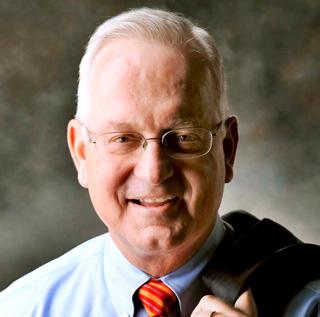


Free Press staff report
Sixteen dance troupes representing cultures from around the world will take the stage at Deep Run Park on Saturday, Sept. 20, as Richmond’s International Dance Festival returns for its second year.
Amma Gatty, founder and CEO of Culture Encounters, said the festival is about more than performances.
“Our first festival proved the power of dance to bring Richmond together,” Gatty said. “This year builds on that momentum. Through our monthly programs, from family days at the Children’s Museum to cultural dinners at local restaurants, we make connections fun and accessible.”
The festival, from 11 a.m. to 5 p.m. at Deep Run Park, showcases collaboration among Richmond’s immigrant and first-generation communities. Dance troupes from around the world and food vendors offering global cuisine will present their heritage side by side, bridging cultural gaps through movement, music and food.
Festival performances include Sayaw Diversity (Filipino), Heart of Ireland (Irish), Pacific Arts Troupe (Chinese), Richmond Kimono Club (Japanese), River City Taiko (Japanese drummers), Kalasattva (Bharatanatyam-South Indian), Richmond Breakers (hip-hop/street dance), the Panamania Traditional Dance Group (Panamanian), Tap Connection (tap dance), Stavna Ballet (European classical tradition), Yu Dance Arts (Chinese), Ajna Tribal (belly dance fusion), Karma (Bollywood fusion), Nepali Community of Richmond VA (Nepali), Heritage Village Project (African) and Pungmul Play Group (Korean).
The festival is presented in partnership with Henrico Outreach & Engagement Agency, which works to ensure residents have access to county services, programs and cultural opportunities.
Free Press staff report
Historian Charles H. Ford will discuss his new book about LGBTQ+ history in Virginia during a free presentation at the Library of Virginia this month.


Engagement Division. “The

The talk will focus on “Queer Virginia: New Stories in the Old Dominion,” which Ford coedited with Jeffrey L. Littlejohn. Registration is required at lva-virginia.libcal.com. The book chronicles how LGBTQ+ Virginians have fought discrimination and advocated for their rights throughout the state’s history. It includes stories ranging from a Black transgender woman who faced severe discrimination in Loudoun County during the 1930s to the history of Norfolk’s Hershee Bar, a longtime lesbian gathering place.
“The volume reveals generations of widespread prejudice and oppressive laws and the inspiring resilience that queer Virginians brought to this struggle,” according to a news release from the library.
Ford is a professor of history at Norfolk State University and co-author of “Elusive Equality: Desegregation and Resegregation in Norfolk Public Schools.”
The presentation runs from noon to 1 p.m. Tuesday, Sept. 30 at the library, 800 E. Broad St. For more information, visit lva.virginia.gov.
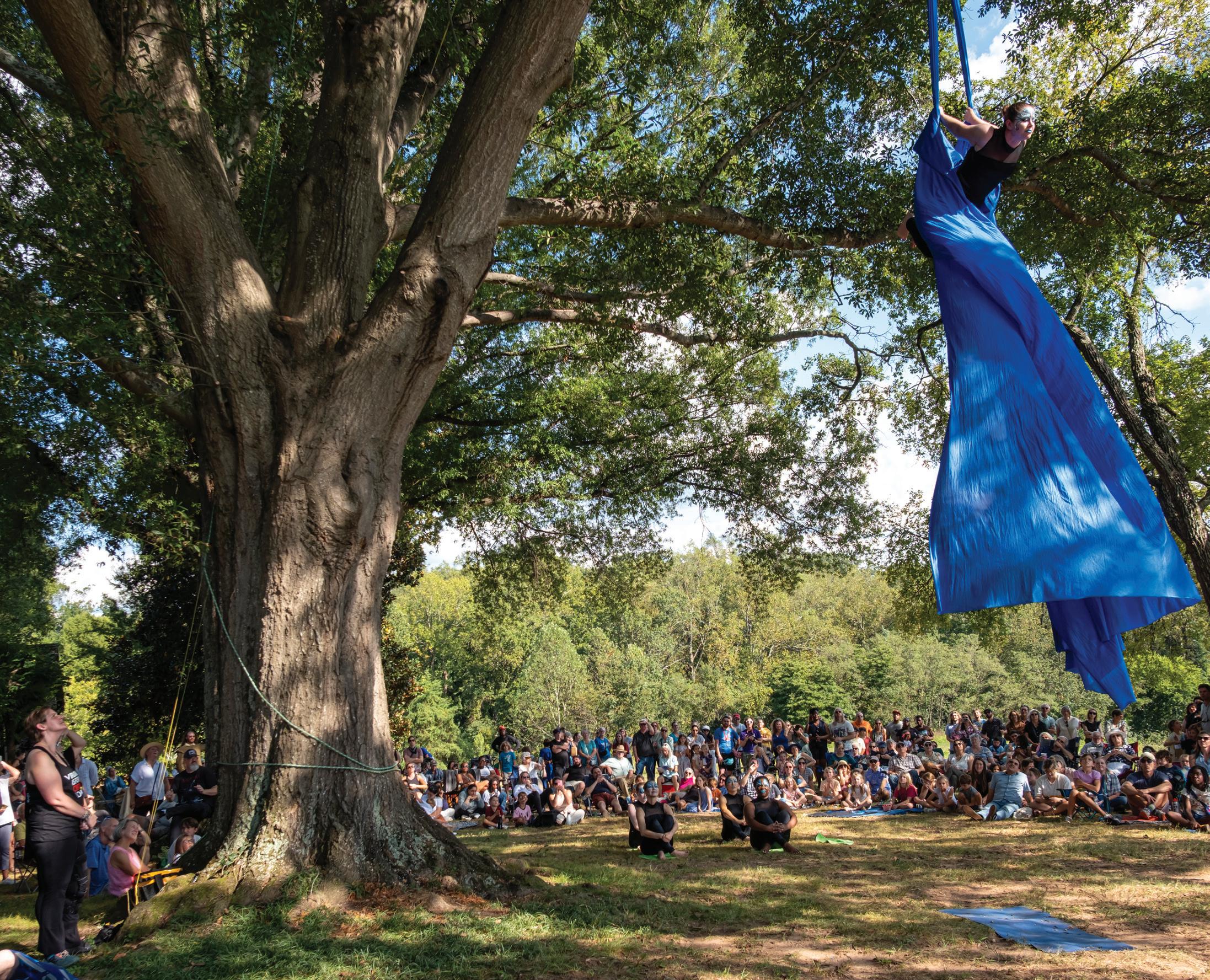



Join us for a free talk by historian Charles H. Ford on the new work he co-edited with Jeffrey L. Littlejohn, which offers a long-needed record of the courageous and creative ways that LGBTQ+ people across the Commonwealth have persevered and fought for their rights.

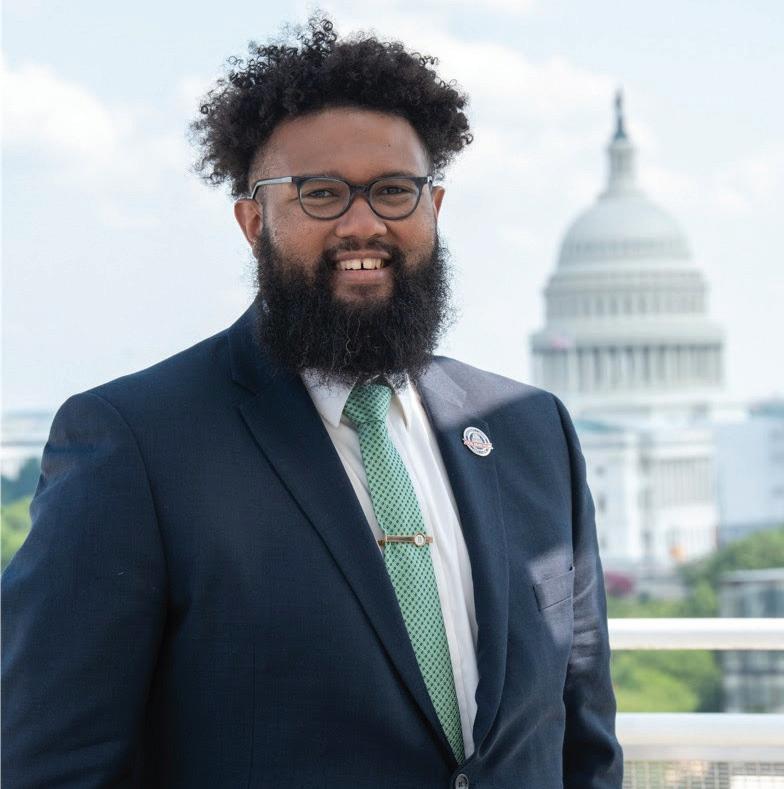
Free Press staff report
Chris Burton, director of the Leadership Institute at Union Presbyterian Seminary, has been selected for the 2025-26 class of the Obama Foundation Leaders program.
Burton is among more than 200 people chosen for the program and one of just over 100 participating in the Leaders USA track, which provides training in leadership development and civic engagement. The six-month program includes weekly virtual sessions, mentorship opportunities and special events designed to help participants expand their impact across public, private and nonprofit sectors.
At UPSem, Burton oversees continuing
education and certificate programs that support pastors, educators and community partners, including returning citizens, in developing leadership skills. His responsibilities include managing professional development programs and coordinating educational initiatives for various community groups. He has led initiatives such as the Remix Project, a hip-hop education course developed with a Henderson Middle School teacher and a nationally certified counselor to support students’ social and emotional growth. Burton has also worked with local schools and community organizations to develop educational programming that addresses social and
emotional learning needs.
The Leaders USA program, now in its third year, draws on the Obama Foundation’s Hope to Action curriculum and emphasizes strengthening democratic culture. Participants focus on areas including civic engagement, public health, climate sustainability, and arts and culture. The program provides training sessions and networking opportunities for participants throughout the six-month period.
The Obama Foundation Leaders program connects emerging leaders from Africa, the Asia-Pacific, Europe and the United States to foster collaboration and drive community change. For more information, visit obama.org/leaders.
Free Press staff report
Third Baptist Church will open its doors to the community Sept. 23 for a public “Conversation with the Candidates” forum ahead of the 2025 Virginia general election.
The Petersburg Association of Neighborhoods and Watches is organizing the event, which begins at 6 p.m. in the fellowship hall of the church at 550 Farmer St. The evening will feature candidates for Petersburg’s sheriff, commissioner of the revenue, treasurer and commonwealth’s attorney, as well as candidates for the

82nd District seat in the Virginia House of Delegates.
Attendees will hear from candidates including Kimberly Pope-Adams, Brittany Flowers, Tiffany Buckner and Paul Mullins, who will answer questions submitted by voters and outline their priorities on issues such as education, local business, public safety and community development and other matters affecting residents. Representatives from Virginia Organizing will also be on hand to help people begin the process of restoring their voting rights. The forum is free. For more information, call (804) 760-0353.
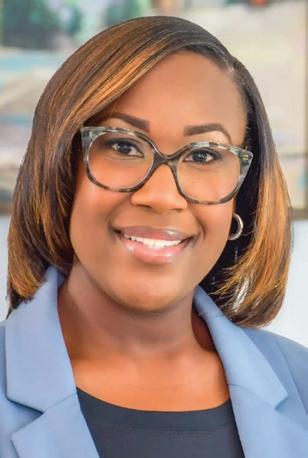

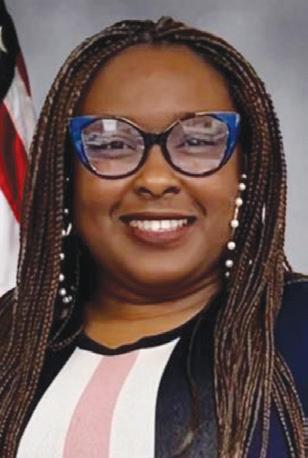
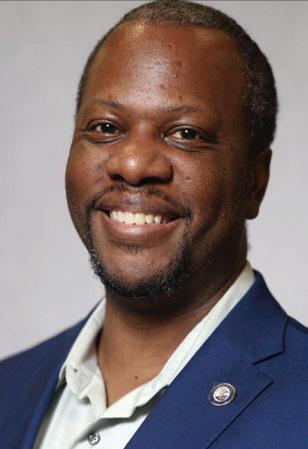
Living will host the 2025 Gospel Fest and clothing drive on Saturday, Sept. 20, from 4:30 to 7:30 p.m. at 2600 Nine Mile Road. Doors open at 4 p.m. The free, all-ages event will feature performances from local gospel artists and choirs, including the Mount Carmel Baptist Church Children’s Choir, VCU’s Black Awakening Choir, Jewell Booker and Rae Hudnell. Praise 104.7’s Sheilah Belle “The Belle” will serve as emcee. Praise dancing and other performances are planned.
Attendees are encouraged to bring lawn chairs and clothing donations, which will be distributed to those in need. Food trucks, including Traditionz, LaBete and Mobile Yum Yum, will be on site.
The festival aims to celebrate gospel music while fostering community fellowship and service.
Sarah Garland Jones Center to host 2025 Gospel Fest and clothing drive River Road Church welcomes educator Joshua Cole for forum event
Free Press staff report
River Road Church will welcome award-winning educator Joshua Cole on Saturday, Sept. 27 for a session on inclusivity as part of its Distinguished Speaker Forum. The event runs from 1 to 2:30 p.m. with doors opening at 12:15 p.m. Free parking is available on the church grounds and across River Road. Cole, founder of A New Angle, will explore the benefits of inclusivity and the barriers that can prevent it. Drawing on more than 25 years of experience in preK-12, higher

education and nonprofit sectors in the U.S. and Australia, he will share practical approaches to building relationships and fostering collaboration. The session will be followed by a light reception and an opportunity for attendees to speak with Cole. Tickets are required and must be purchased in advance through Eventbrite.
River Road Church is located at 8000 River Road in Richmond. The Distinguished Speaker Forum is presented by River Road Church and River Road Church Preschool. More information is available at rrcb.org/distinguished-speaker-forum
